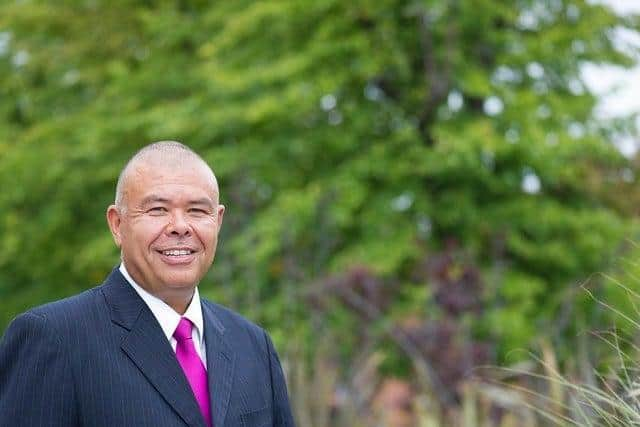Top doctor issues advice on visiting Meadowhall as UK coronavirus cases rise to 373
and live on Freeview channel 276
Writing for The Yorkshire Post, Jonathan Van-Tam said that it was perfectly safe to continue to visit the shopping centre – for the time being.
He wrote: “When new viruses emerge in humans, we must treat them with the utmost respect and learn as much as we can about them.
Advertisement
Hide AdAdvertisement
Hide Ad“Since the first cases of COVID-19 were reported in China’s Hubei province in early December 2019, leading UK scientists and clinicians have been working with international partners to closely monitor this outbreak.


“A vaccine will take time to develop safely. We are still learning about how COVID-19 affects individuals, and as our understanding of this virus develops, so too does the way in which we can manage cases.
“The virus causes sore throat, fever, cough and muscle aches, rather like flu and lasts seven to 10 days. A small minority of sufferers can develop breathing difficulties and pneumonia. The illness is more dangerous for people with weakened immune systems, older people, and those with long term conditions like heart disease, lung disease and diabetes.
“I receive regular advice from the best experts in the country, and already, we have sequenced the genome. Our testing capability is excellent, and we have a growing understanding of the virus.
Advertisement
Hide AdAdvertisement
Hide Ad“Last week, the government published a coronavirus action plan. We have always said it is likely that we will see more cases, and we are working hard to handle this increase through our four phased approach – contain, delay, mitigate, and research.


“This lists the options government could consider in a worst case scenario; these should not be read as a list of the steps the government will definitely take. While much has been written about whether ‘social distancing’ will be necessary, my advice on this currently remains unchanged. We are not telling people to avoid Meadowhall, for Leeds United or Bradford Bulls to play behind closed doors – nor should people cancel their travel plans from York Station.
“Our advice couldn’t be simpler to follow: washing your hands more often is something all of us can do to significantly reduce the risk of the disease spreading.
“Washing your hands more often - when you come in from home or work, after you blow your nose, cough or sneeze, and before you eat or handle food can make a huge difference.
Advertisement
Hide AdAdvertisement
Hide Ad“This should be for 20 seconds, using soap and water or hand sanitiser. You should also cough or sneeze into tissues before binning them, so your hands are kept clean, then wash your hands. If you don’t have a tissue, cough or sneeze into the crook of your elbow.
“The UK is a world leader in preparing for and managing disease outbreaks and our approach will always be led by medical experts.
“But we have to be realistic – if the virus increases, we expect the UK to be impacted and pressure will be placed on the NHS.”